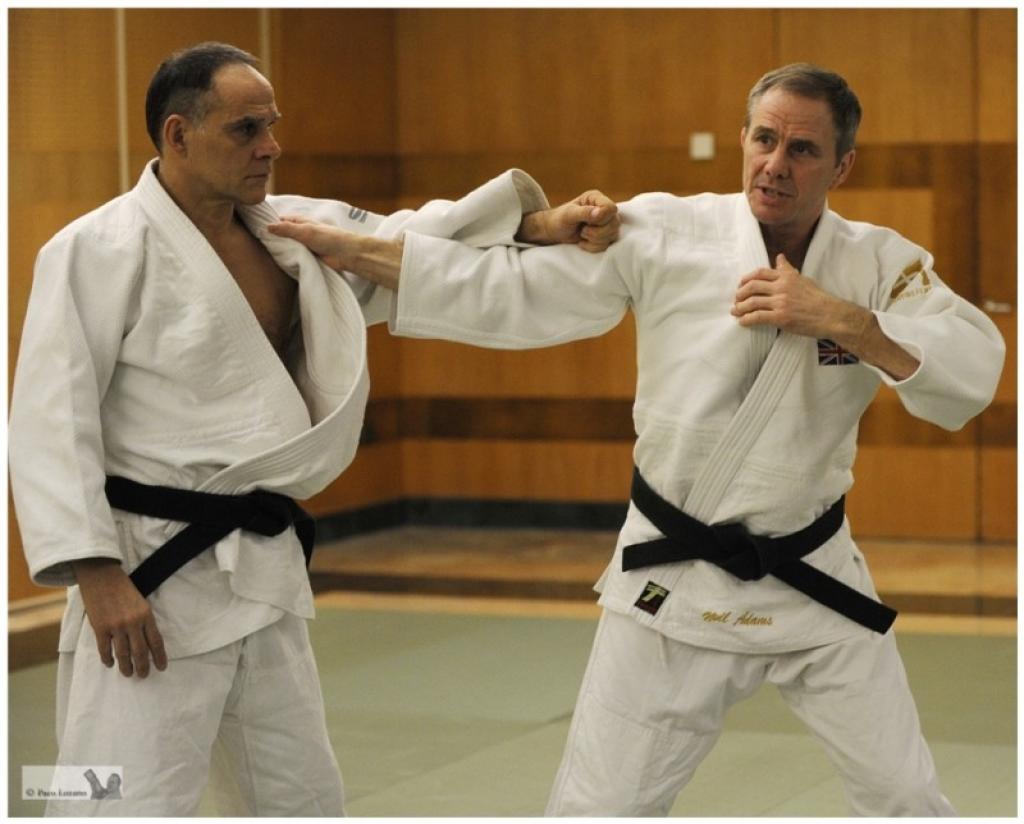Last week was the IJF Refereeing and Coaching Technical Update in Malaga.
The new rules applicable in 2013 are just a test period until and including the World Senior Championships in Rio de Janeiro in August, after the event the rules will be evaluated. For the beginning of 2014 the rules will be determined for the next Olympic Period until 2016 in Rio.
The IJF organised this seminar hosted in Malaga by the Spanish Judo Federation led by IJF Head of Referee Directors Juan Barcos, assisted by IJF Referee Director Jan Snijders. Almost 50 nations participated and 165 participants enjoyed the athmosphere and content of the seminar.
We spoke with Jan Snijders about this experiences of the seminar, organized by the IJF. It was the first in a series of continental Technical Updates.
Jan Snijders: “In general we had a good feeling when we returned from Malaga. It’s not always easy to start with new details in our rules. It’s just a test period and we will collect experience with it. But we went home with the same direction of thinking and had the same positive feeling. We were proviliged to have invited Ezio Gamba and Neil Adams who were present as our experts, to explain and demonstrate some parts of the rules such as leg gripping (below the belt) and Kumi-kata situation.
We can understand that the coaches are worried and not satisfied about the changes. But now is not the time to discuss many issues, we have to apply to the testing rules. We need to apply together as a team. I think the main points are: Leg Gripping and Kumi-kata.
All kinds of leg gripping in Tachi-waza are not permitted anymore. In a good collaboration with the coaches and referees we don’t have any exception to grip the legs in Tachi-waza
Together with Ezio Gamba and Neil Adams we produced a videoclip with examples of permitted and no-permitted clips.
Also we have analysed the score and considered many times ippon and waza-ari were really close. Now we will try to get a clear difference with those two scores. Of course our sport is complicated and some throws are on the limit of waza-ari and ippon.
Also we want to give back the responsibility for the refereeing to the referees and we don’t like to intervene so many times like in the past. Of course in the case of real big mistakes we have to act as a supervisor or referees and correct the score. All what we want to do should always be in favour of our athletes.
At this seminar we had four different sessions:
1. All together with referees and coaches
2. Referees separated
3. Coaches separated
4. Referees and coaches to practise on the mat.
These sessions gave us the advantage to discuss on the spot and directly answer theortical and practical questions.
It was a real good support by the IJF Head Sport Director Vladimir Barta, IJF General Secretary Jean-Luc Rougé and IJF Sport Directors Armen Bagdasarov and Daniel Lascau.
Everyone had a good feeling with this seminar and agreed what we talked about. Finally we can consider that this IJF seminar was a good introduction of the testing rules and was a big success in collaboration with coaches and referees.
__pictures__
Snijders: “The big change is that the penalties given in the past were awarded as technical score for the opponent. This is not anymore the case. It’s only in our sport, and in not in any kind of sport, a penalty results in a technical score for the opponent. In general we can say that the athlete with less penalties, in the case of a draw of technical scores, will win.
Also with the development of the rules it will be advantage for the spectators and TV viewers and fans in general to understand the rules. The scoreboard is easier to read because the penalties are not awarded in points.”
The rules will apply for all age categories, so for seniors, juniors and cadets.
The first Coaches and Referee Seminar organised by the EJU will be held in Baku in May.
Watch all photos of the IJF Technical Update here:
Media Matters




